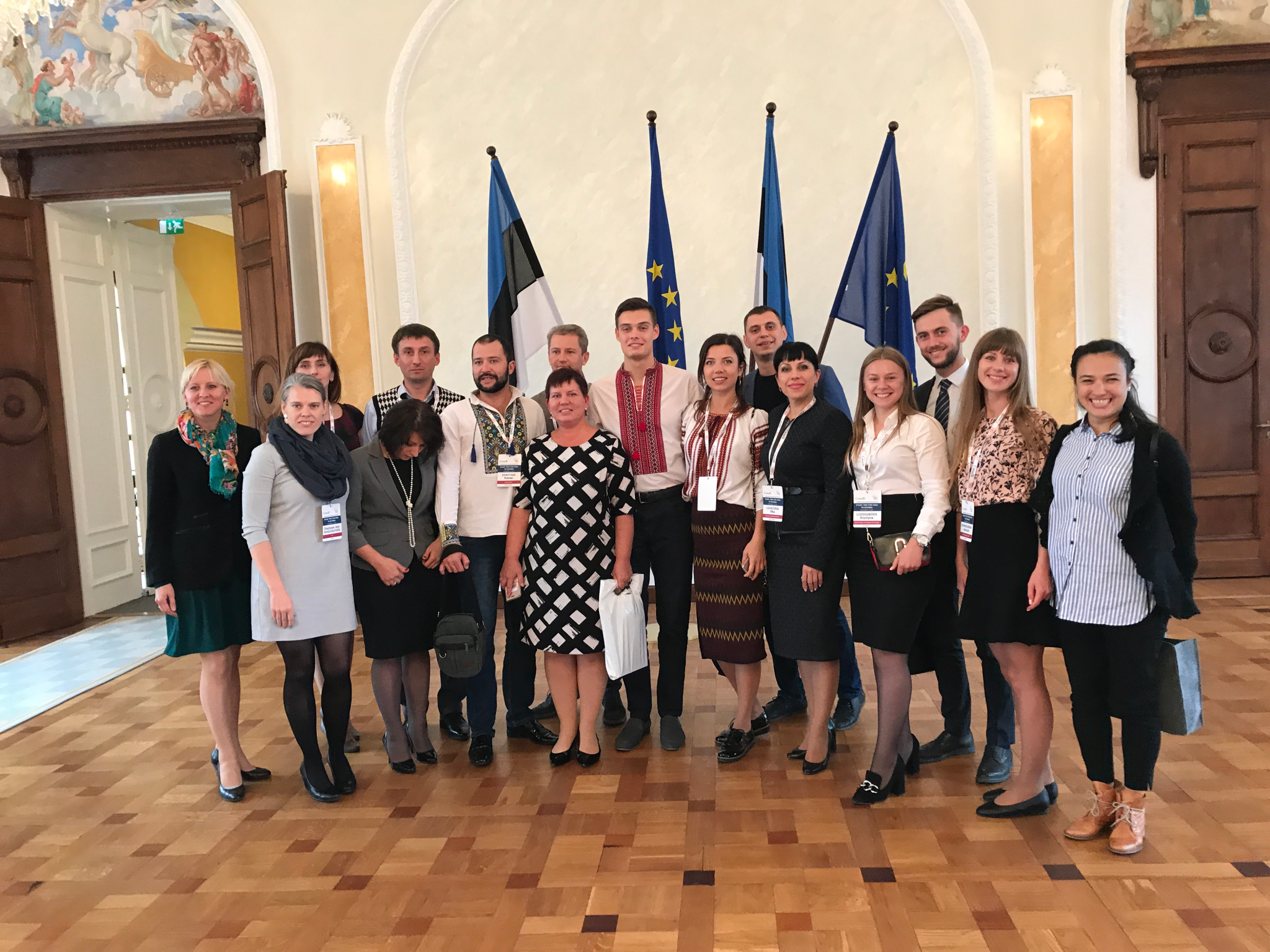The local government sector is one of the biggest success stories in Ukraine today. Since 2015, when IRI began measuring municipal service satisfaction and political/social attitudes in Ukraine’s 24 largest cities, there have been year-on-year increases in public satisfaction with local services and support to local authorities. This contrasts with people’s attitudes towards the president, cabinet of ministers and parliament—which have all seen their levels of support decrease every year since 2015.
This fall, the IRI Ukraine team facilitated a pair of technical exchanges to Estonia for Ukrainian elected city council members. In September and October, 25 Ukrainian participants have successfully completed programs with the Estonian e-Governance Academy. The groups included young members of Ukraine’s civil society from smaller regional organizations outside of Kyiv focused on municipal development issues, and elected city council members from eastern and southern Ukraine, including the embattled Donbas region.
Many of the e-governance innovations deployed in Estonia required changes to national legislation and a well-managed public rollout to Estonia’s 3 million residents. The challenges for Ukraine in managing well-coordinated and comprehensive legislative agenda loom large. However, similar to Ukraine’s ongoing decentralization reforms, separate legislative pieces could be implemented that would deliver innovative solutions more immediately. In particular, e-governance solutions to improve municipal services not only save the community money (or better yet, earn money for the municipality) and will positively impacts social issues at the ground level. These are important lessons that IRI is helping Estonia share with Ukraine.
Bridging the gap between Estonia’s successful e-governance solutions and Ukrainian young local elected officials tasked with implementing reforms is a unique and important task to support Ukraine’s decentralization process. Partner institutions such as the e-Governance Academy of Estonia perform an important service in sharing their success and the practical hands-on experience of seeing what transparent, accountable and innovative governance can be.
Top
